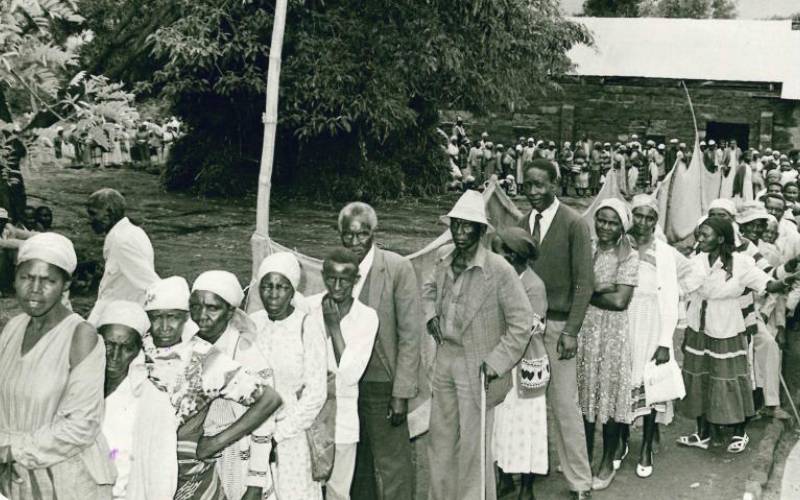×
The Standard e-Paper
Smart Minds Choose Us

Voters queue to be counted at the St Mary’s Primary School, Karen, during the infamous mlolongo 1988 General Election. [File, Standard]
In the week Deputy President William Ruto went bare knuckles with his boss, President Uhuru Kenyatta, he had more trouble blowing up for him in Mt Kenya region.